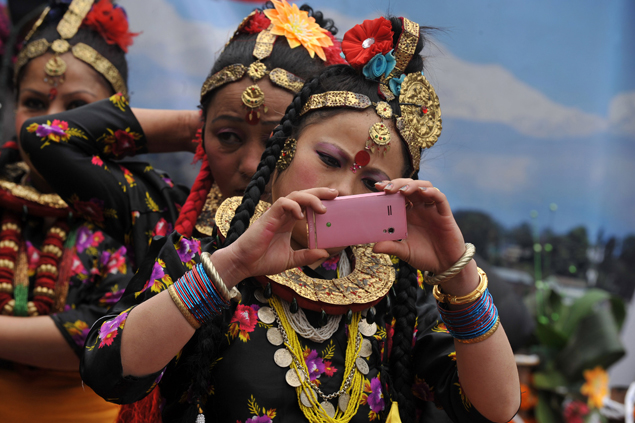- Home
- Telecom
- Telecom News
- DoT panel recommends new unified licence for telecom and broadcasting
DoT panel recommends new unified licence for telecom and broadcasting
By Press Trust of India | Updated: 10 February 2013 16:45 IST

Click Here to Add Gadgets360 As A Trusted Source

Advertisement
A DoT panel has recommended a new unified licence for telecom and broadcasting offerings that would enable end users to get a host of services such as mobile, landline, DTH, cable TV from a single company without the entity necessarily owning the full infrastructure.
A Department of Telecommunications (DoT) committee in its report on Unified Licensing regime under National Telecom Policy 2012 has proposed a new kind of licence - UnifiedLicence (Service Delivery) - that can be used by its holder to use infrastructure of other companies to deliver all kind of communication services to its subscribers. This new service operator may not be required to own complete infrastructure for delivering the services as required at present.
According to sources, the report of the panel has recommended that "UL (Services delivery) licensee need not create its own full infrastructure and at the same time delivers the services to the end users on a single platform."
The panel in its report has proposed another licence which will be Network Services that will own the network infrastructure that can be used by Services Delivery licence holders.
The panel report, according to sources, said the end user would be able to "interact with only one operator for all his needs such as fixed telephone, mobile phone and broadband access through fixed line, wireless broadband access, cable television, satellite television, IPTV for residential users... Further a single billing would be feasible".
The report further said the new service delivery licences would also support business models like MVNO (Mobile Virtual Network Operator) and reseller options where any company in agreement with network services will be able to provide services to end consumers.
The panel has proposed to allow UL (Network Services) holder to also provide telecom services. For present infrastructure companies (IP-1), commonly known as telecom tower firms, the panel has recommended bringing them under licensing regime but allowing them to function with 100 per cent Foreign Direct Investment as against the current permissible limit of 74 per cent in the telecom sector.
According to sources, the panel report said: "The IP-1 players may be brought under Unified Licensing regime. However, exemption in respect of FDI may be sought from the DIPP (Department of Industrial Policy and Promotion). IP-1 Players should be allowed to continue as at present."
Inter-ministerial body, the Telecom Commission is expected to meet on February 18 to discuss these recommendations of the panel for new licences.
A Department of Telecommunications (DoT) committee in its report on Unified Licensing regime under National Telecom Policy 2012 has proposed a new kind of licence - UnifiedLicence (Service Delivery) - that can be used by its holder to use infrastructure of other companies to deliver all kind of communication services to its subscribers. This new service operator may not be required to own complete infrastructure for delivering the services as required at present.
According to sources, the report of the panel has recommended that "UL (Services delivery) licensee need not create its own full infrastructure and at the same time delivers the services to the end users on a single platform."
The panel in its report has proposed another licence which will be Network Services that will own the network infrastructure that can be used by Services Delivery licence holders.
The panel report, according to sources, said the end user would be able to "interact with only one operator for all his needs such as fixed telephone, mobile phone and broadband access through fixed line, wireless broadband access, cable television, satellite television, IPTV for residential users... Further a single billing would be feasible".
The report further said the new service delivery licences would also support business models like MVNO (Mobile Virtual Network Operator) and reseller options where any company in agreement with network services will be able to provide services to end consumers.
The panel has proposed to allow UL (Network Services) holder to also provide telecom services. For present infrastructure companies (IP-1), commonly known as telecom tower firms, the panel has recommended bringing them under licensing regime but allowing them to function with 100 per cent Foreign Direct Investment as against the current permissible limit of 74 per cent in the telecom sector.
According to sources, the panel report said: "The IP-1 players may be brought under Unified Licensing regime. However, exemption in respect of FDI may be sought from the DIPP (Department of Industrial Policy and Promotion). IP-1 Players should be allowed to continue as at present."
Inter-ministerial body, the Telecom Commission is expected to meet on February 18 to discuss these recommendations of the panel for new licences.
Comments
Get your daily dose of tech news, reviews, and insights, in under 80 characters on Gadgets 360 Turbo. Connect with fellow tech lovers on our Forum. Follow us on X, Facebook, WhatsApp, Threads and Google News for instant updates. Catch all the action on our YouTube channel.
Related Stories
Popular on Gadgets
- Samsung Galaxy Unpacked 2025
- ChatGPT
- Redmi Note 14 Pro+
- iPhone 16
- Apple Vision Pro
- Oneplus 12
- OnePlus Nord CE 3 Lite 5G
- iPhone 13
- Xiaomi 14 Pro
- Oppo Find N3
- Tecno Spark Go (2023)
- Realme V30
- Best Phones Under 25000
- Samsung Galaxy S24 Series
- Cryptocurrency
- iQoo 12
- Samsung Galaxy S24 Ultra
- Giottus
- Samsung Galaxy Z Flip 5
- Apple 'Scary Fast'
- Housefull 5
- GoPro Hero 12 Black Review
- Invincible Season 2
- JioGlass
- HD Ready TV
- Laptop Under 50000
- Smartwatch Under 10000
- Latest Mobile Phones
- Compare Phones
Latest Gadgets
- OPPO A6v 5G
- OPPO A6i+ 5G
- Realme 16 5G
- Redmi Turbo 5
- Redmi Turbo 5 Max
- Moto G77
- Moto G67
- Realme P4 Power 5G
- HP HyperX Omen 15
- Acer Chromebook 311 (2026)
- Lenovo Idea Tab Plus
- Realme Pad 3
- HMD Watch P1
- HMD Watch X1
- Haier H5E Series
- Acerpure Nitro Z Series 100-inch QLED TV
- Asus ROG Ally
- Nintendo Switch Lite
- Haier 1.6 Ton 5 Star Inverter Split AC (HSU19G-MZAID5BN-INV)
- Haier 1.6 Ton 5 Star Inverter Split AC (HSU19G-MZAIM5BN-INV)
© Copyright Red Pixels Ventures Limited 2026. All rights reserved.

















